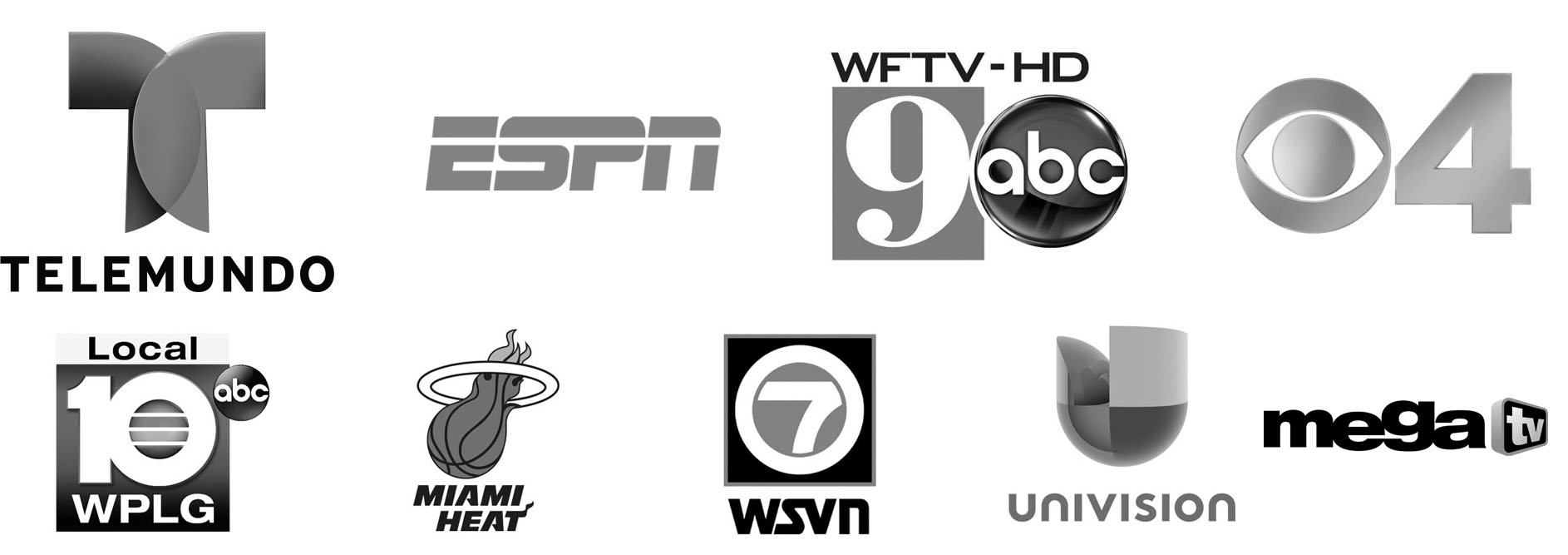
Uber and Lyft have become a regular part of daily life in Miami, with residents and tourists alike using rideshare services for transportation throughout the city.
However, when an accident involves one of these vehicles, the legal and financial consequences can be more complicated than a standard car crash.
The involvement of a rideshare company, multiple insurance policies, and app-based liability rules can create confusion for injured passengers, drivers, and pedestrians alike.
You may be compensated if you were injured in a rideshare accident. The steps you take next—whether you were a passenger, another driver, or a pedestrian—can directly affect your ability to recover damages.
Call 888-570-5677 for a complimentary consultation with a Miami rideshare accident lawyer. Discover how we can assist you in recovering maximum compensation today.
 Individuals injured in rideshare accidents may be eligible to recover economic and non-economic damages, depending on the facts of the case. Compensation is meant to cover the financial costs associated with the crash and the broader impact on the injured person’s life.
Individuals injured in rideshare accidents may be eligible to recover economic and non-economic damages, depending on the facts of the case. Compensation is meant to cover the financial costs associated with the crash and the broader impact on the injured person’s life.
Medical Expenses. This includes ambulance transport, hospital stays, surgeries, rehabilitation, physical therapy, medications, and follow-up visits. If ongoing treatment is expected, future care needs can also be included.
Lost Income and Reduced Earning Capacity. If the accident caused missed work or reduced your ability to return to your previous job, those lost earnings may be recoverable. For individuals who suffer long-term impairments, loss of earning capacity may also be considered.
Property Damage. This applies when a personal vehicle or other property is damaged in the crash. Repair or replacement costs may be included in the claim.
Pain and Suffering. Non-economic damages such as chronic pain, emotional trauma, and diminished enjoyment of life are often part of a personal injury claim. These damages are based on the severity and duration of the injury.
Loss of Consortium or Companionship. In severe cases involving permanent disability or death, certain family members may also be eligible to pursue compensation for the loss of companionship or support.
Claims must be backed by evidence, including medical records, wage documentation, and statements about the injury’s impact on daily life. The Miami personal injury lawyer can help estimate claim value and negotiate a resolution reflecting the full extent of your losses.

Your Insurance Attorney represents individuals injured in rideshare accidents throughout the Miami area. The firm handles claims involving Uber, Lyft, and other app-based transportation providers and focuses on helping clients recover fair compensation for their injuries.
With over 75,000 resolved cases and over $1 billion recovered for clients, Your Insurance Attorney has experience dealing with insurance companies and complex injury claims. Our rideshare crash lawyers prepare each case carefully, gathering the documentation, witness accounts, and legal analysis needed to support a claim for damages.
Legal services are available in both English and Spanish. Whether the accident occurred in Brickell, Little Havana, Coral Gables, Wynwood, or another Miami neighborhood, clients receive direct access to a legal team familiar with local roads, traffic trends, and insurance procedures.
Your Insurance Attorney offers:
If you have been injured in a rideshare accident, Your Insurance Attorney can help clarify your legal options and pursue compensation. The goal is to reduce the burden on you and your family while protecting your rights throughout the claims process.
Rideshare accidents can involve various parties with different legal rights and potential claims. Unlike collisions involving two private vehicles, rideshare incidents may include questions about company liability, coverage limitations, and whether the driver was actively using the app at the time of the crash.
Passengers injured during an Uber or Lyft trip may have legal grounds to pursue a claim through the rideshare company’s liability coverage. These policies typically apply if the rideshare driver caused the accident or if another driver was at fault but lacked adequate insurance. Passengers are rarely considered liable and may be able to recover damages regardless of who caused the crash.
Individuals injured by a rideshare vehicle while driving their car, riding a bicycle, or traveling as a passenger in another vehicle may have a valid claim against the rideshare driver. If the app was active and the driver was logged in, the rideshare company’s insurance may apply in addition to the driver’s personal policy.
Pedestrians struck by rideshare vehicles may also pursue compensation. Liability will depend on whether the rideshare driver was actively transporting a passenger, waiting for a ride request, or driving for personal reasons. These details can determine which insurance policy applies.
Each scenario involves different rules for assigning fault and applying insurance coverage. That is why it is important to document the driver’s status, collect witness statements, and preserve evidence immediately after the incident.
After receiving medical care, the priority shifts to protecting your legal rights. Whether you were a passenger in the rideshare vehicle or were hit by one, the actions you take during your recovery period can shape the outcome of your case.
An attorney can review the facts of the crash, determine which insurance policies may apply, and deal directly with claims adjusters. Insurance companies often try to minimize payouts by disputing liability or offering early settlements that fall short of the claim’s value. Legal representation may reduce that risk and allow you to focus on recovery.
Keep all records related to the accident and your medical treatment, including:
These materials may serve as evidence of the crash, the extent of your injuries, and the economic impact of your recovery. A complete record also helps ensure that no losses are overlooked in a settlement or court case.
You are not required to provide a recorded statement to the insurance company before consulting legal counsel. In some cases, statements made early in the process may later be used to dispute your claim. It is best to let your attorney manage these interactions.
In addition to medical costs, you may be eligible to claim lost wages, reduced earning capacity, and non-economic damages such as emotional distress. Keep a journal of how your injuries affect your daily routine, work responsibilities, and mental well-being. This documentation can strengthen your claim and help quantify damages not reflected in medical bills alone.
Determining liability in a rideshare accident involves reviewing multiple factors. Unlike most car accidents, these cases can include a combination of personal and commercial insurance, app-based status tracking, and overlapping responsibilities between drivers and companies.
 If the driver of the rideshare vehicle acted negligently—speeding, running a red light, or driving distracted—they may be held responsible for the accident. In Florida, rideshare drivers are classified as independent contractors, not employees, which affects how liability is assigned.
If the driver of the rideshare vehicle acted negligently—speeding, running a red light, or driving distracted—they may be held responsible for the accident. In Florida, rideshare drivers are classified as independent contractors, not employees, which affects how liability is assigned.
Uber and Lyft provide tiered insurance coverage that changes depending on the driver’s activity at the time of the crash. If the driver was:
In some cases, another vehicle may have caused the collision. If that driver lacks sufficient insurance, the rideshare company’s uninsured or underinsured motorist coverage may apply to protect passengers. Liability may also fall on third parties such as delivery drivers, commercial fleet operators, or government entities responsible for dangerous road conditions.
Assigning fault and confirming coverage requires a careful investigation. Witness statements, police reports, dashcam footage, and rideshare app data may all help prove who is responsible.
The legal framework for rideshare insurance in Florida differs from traditional car accident coverage. Rideshare companies such as Uber and Lyft are required by law to provide tiered insurance that applies depending on the driver’s status within the app. This system affects which policy covers the injuries and how much compensation may be available.
Florida law separates coverage into three distinct periods:
These policies apply regardless of who is at fault, provided the driver used the app in the specified capacity. However, coverage disputes can arise, especially if the driver toggled the app on or off shortly before the collision. In some cases, insurers may attempt to shift responsibility between personal and commercial policies, leaving injured individuals in a difficult position.
Understanding how these rules apply to your case often requires access to app data, trip logs, and correspondence between the driver and the company. Legal assistance may be beneficial in determining which insurance tier applies and enforcing those obligations.
 Time limits for filing a claim after a rideshare accident in Florida are strict. As of March 24, 2023, the deadline for filing a personal injury lawsuit is two years from the accident date. This change, enacted through House Bill 837, shortens the previous four-year window and applies to all incidents occurring on or after that date.
Time limits for filing a claim after a rideshare accident in Florida are strict. As of March 24, 2023, the deadline for filing a personal injury lawsuit is two years from the accident date. This change, enacted through House Bill 837, shortens the previous four-year window and applies to all incidents occurring on or after that date.
The court may dismiss claims filed after the deadline, even if liability is clear. Certain exceptions exist, such as those involving minors or delayed discovery of injuries, but they are narrow and rarely granted.
Wrongful death lawsuits must also be filed within two years of the date of death. This applies when a rideshare accident results in a fatality and surviving family members pursue compensation for their losses.
Timely case evaluation ensures that evidence can be preserved, medical records can be obtained, and notices can be filed before statutory deadlines expire. Waiting too long may prevent an otherwise valid claim from moving forward.
Hiring legal representation after a rideshare accident is a personal decision. The right law firm will understand the law and prioritize client communication, case development, and long-term outcomes. Before selecting a lawyer, consider asking:
These questions can help you assess whether a law firm meets your needs and expectations. Clear communication and a defined legal strategy can make a meaningful difference in the outcome of your case.
 Rideshare accidents often lead to significant medical expenses, lost income, and long-term disruptions to daily life. Calculating the full impact of an injury goes beyond emergency care—it includes rehabilitation, missed work, and the strain placed on your physical and emotional well-being.
Rideshare accidents often lead to significant medical expenses, lost income, and long-term disruptions to daily life. Calculating the full impact of an injury goes beyond emergency care—it includes rehabilitation, missed work, and the strain placed on your physical and emotional well-being.
Your Insurance Attorney helps clients understand the true cost of a rideshare accident. The legal team reviews every aspect of your situation, from treatment needs to changes in earning capacity, to determine what your claim may be worth. The firm also works with professionals who assess injuries and project how those injuries could affect your life in the years ahead.
While insurance companies focus on limiting payouts, Your Insurance Attorney builds the evidence to show how your injuries have changed your daily routine, work capabilities, and long-term health. The goal is to ensure nothing is overlooked when pursuing compensation on your behalf. Call 888-570-5677 and find out how we can help you today with a free consultation.
2601 S Bayshore Dr 5th Floor
Miami, FL 33133
Ph: 888-570-5677

You handle personal injury,
property damage, and health
claims. How do you do it all?
What does “we don’t get
paid until you do” mean?
Why should people speak
with YIA first before calling
their insurance company?


2300 Maitland Center Parkway
Suite 122
Maitland, Florida 32751
We truly care about getting the best results for you. Our goal is to help you through powerful representation from start to finish. We work with clients all over the states of Florida, Georgia, Colorado, North Carolina, and California.